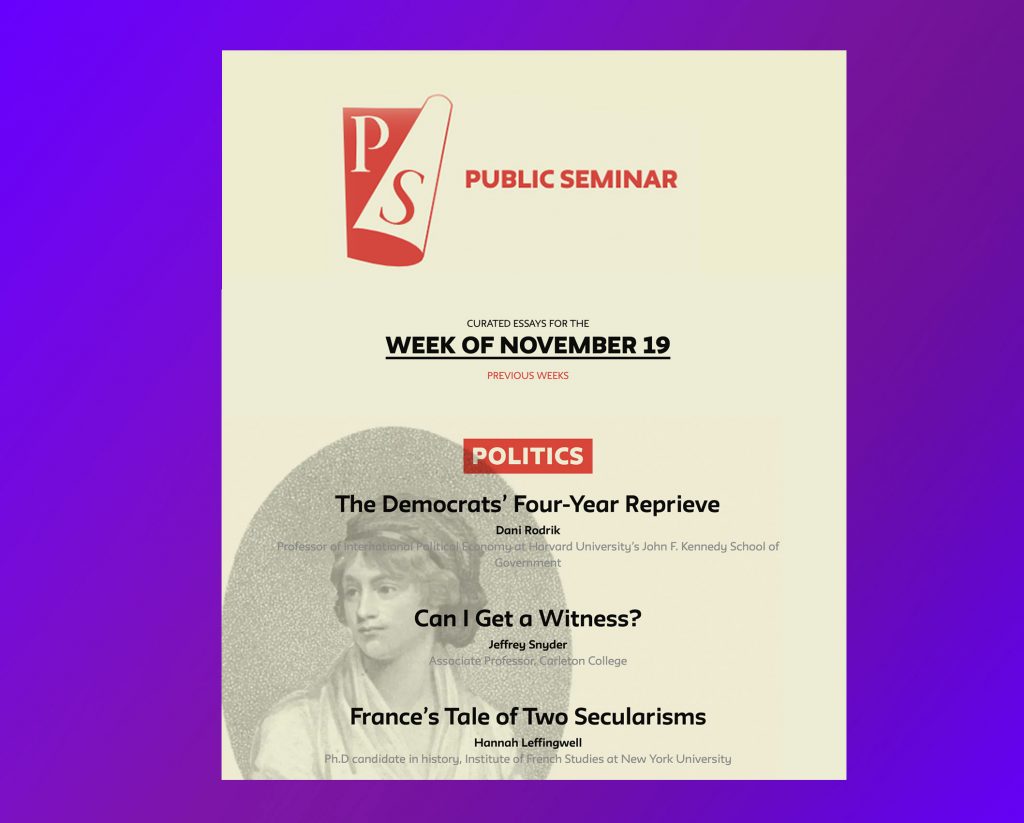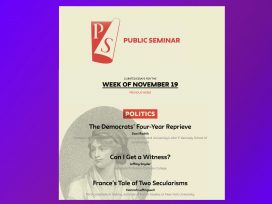Public Seminar blames the disappearance of local journalism for the over-dependency on polls. Also: why anti-racist literature may not signal a new conversation about race; and how schools remain arenas of exclusion in secular France.
The failure of polls to register the middle and largely unpolitical swathe of the electorate may be one reason for large swings for the Democrats. A second reason may be that the perceived stigma of supporting Trump – particularly among women and minorities – deters people from revealing their true preferences.
However, in order to explain why polls consistently mislead we need to look beyond polling methodology. The crisis in polling is happening at the same time that local journalism has been disappearing. Polls have become the sole indicator of what people think locally. But as Potter’s experience confirms, in 2020 it was local factors that were key understanding voter behaviour – and particularly the tendency to vote Republican lower down the ballot.
A new conversation about race?
Jeffrey Snyder argues that when black people film police violence against black people, they are standing in a long history of black testimony in the US – and resisting an equally long history of white people’s refusal to believe that testimony. ‘When she decided to record the killing of George Floyd in Minneapolis, Darnella Frazier understood that without the footage, no one in authority would believe what she was seeing.’
Nineteenth-century slave narratives, the foundation of African American literature, were routinely prefaced by white abolitionists in order to attest to their authenticity. This phenomenon is now mirrored with the rise of anti-racist literature, which tends to come with obligatory ‘testimonials’ from black activists and scholars. ‘When Black witnesses render a verdict on the character of white authors, we are not necessarily seeing a new conversation about race, but a reversal of the power dynamic in which one group authorizes another to speak,’ writes Snyder.
A tale of two secularisms
Public schools in France have historically been central in propagating secular republicanism. However, writes Hannah Leffingwell, they also have a long history of discrimination. Geared towards producing exclusively male citizens, schools were also at the forefront of the ‘civilizing mission’ in the colonies.
It was only when colonial rule collapsed and citizens from the overseas departments began to make their way back to the metropole that laïcité was enshrined into the Fifth Republic. ‘Where Catholicism had once threatened France’s democratic project, Islam became a central target of fear and repression at the close of the twentieth century.’
Published 20 November 2020
Original in English
First published by Eurozine
© Eurozine
PDF/PRINTNewsletter
Subscribe to know what’s worth thinking about.
Related Articles

Mineral rush
Topical: Critical raw materials
Why does peace in Ukraine hang on a ‘mineral deal’ whose handling is more reminiscent of trade than negotiations? Perhaps because the global race for critical raw material mining is well and truly underway, digging for today’s equivalent of gold: raw earth elements and lithium critical for renewables and digital technology but also modern weaponry.

Pro-Irishness was part of the Democratic-Party-dominated political culture that MAGA despises and whose day is done. Time for Ireland to opt once and for all for Brussels over Boston, argues the co-editor of the Dublin Review of Books.







